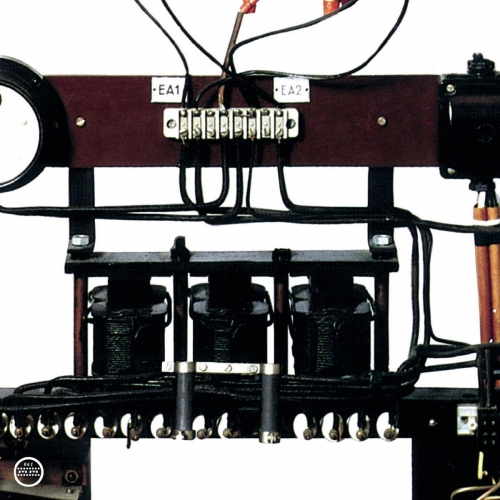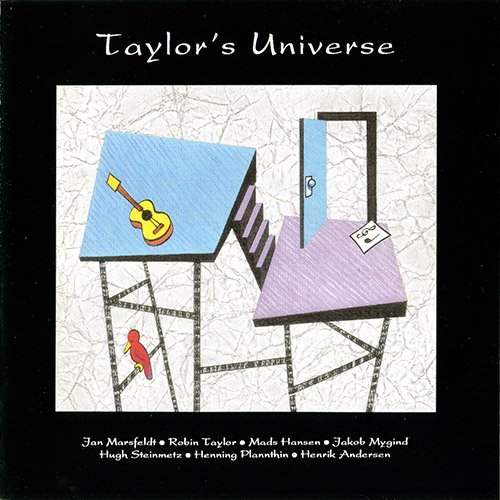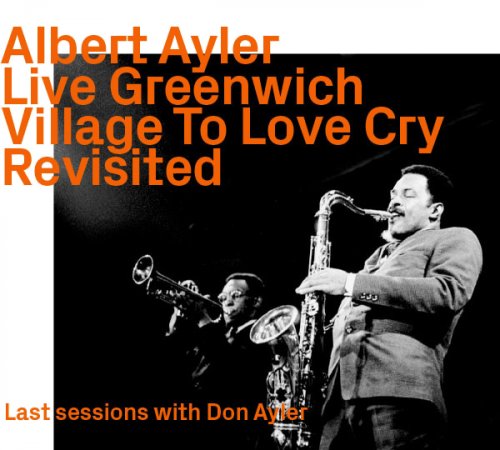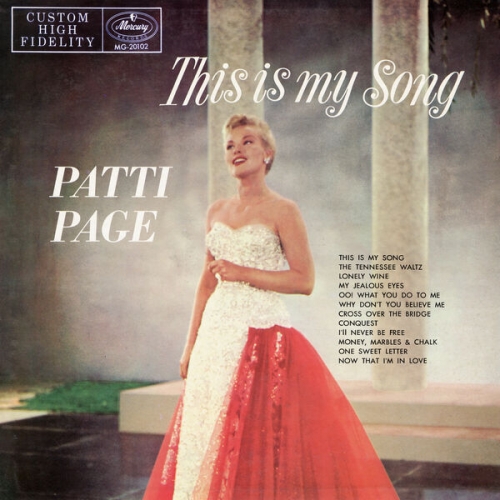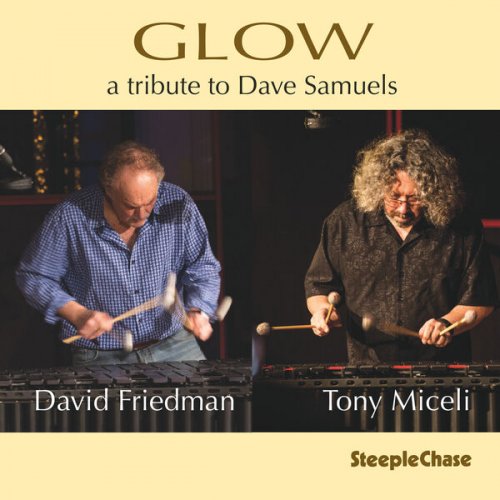Jimmy Giuffre & Jim Hall - The Way It Is (2021)
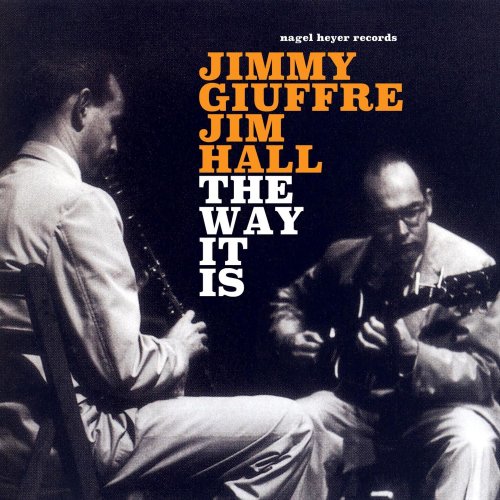
Artist: Jimmy Giuffre, Jim Hall
Title: The Way It Is
Year Of Release: 2021
Label: nagel heyer records
Genre: Jazz
Quality: FLAC (tracks) / MP3
Total Time: 1:19:33
Total Size: 387 / 190 MB
WebSite: Album Preview
Tracklist:Title: The Way It Is
Year Of Release: 2021
Label: nagel heyer records
Genre: Jazz
Quality: FLAC (tracks) / MP3
Total Time: 1:19:33
Total Size: 387 / 190 MB
WebSite: Album Preview
01. California Here I Come
02. Show Me the Way to Go Home
03. That's the Way It Is
04. Fascinating Rhythm
05. Down Home
06. Gotta Dance
07. Crazy She Calls Me
08. The Lonely Time
09. The Sheepherder
10. A Dream
11. 42nd Street
12. Come Rain or Come Shine
13. The Green Country (New England Mood)
14. Time Enough
15. My Funny Valentine
16. My All
17. The Train and the River
18. Mack the Knife
19. The Swamp People
• Controversial, misunderstood, and underappreciated, Jimmy Giuffre was an unlikely candidate to break as much ground as he did in the art of free improvisation. A swing orchestra veteran, Giuffre made his name as part of the West Coast school of cool jazz, but his restless creative spirit drove him to push the boundaries of texture, dynamic shading, counterpoint, and improvisational freedom in surprisingly avant-garde ways, despite maintaining a cool, cerebral exterior.
Born in Dallas in 1921, Giuffre studied music at North Texas College and subsequently played tenor sax in an Army band; upon his discharge, he took jobs with orchestra leaders like Boyd Raeburn, Jimmy Dorsey, and Buddy Rich. In 1949, he joined up with Woody Herman, for whom he'd penned the classic composition "Four Brothers" two years earlier. He then moved to the West Coast, where he learned clarinet and baritone sax, and played with groups like Howard Rumsey's Lighthouse All-Stars and Shorty Rogers' Giants. Giuffre began leading his own sessions in 1954, with groundbreaking albums like Four Brothers and Tangents in Jazz exploring bluesy folk-jazz and third stream fusions.
Trav'lin' LightIn 1956, he formed the first version of the Jimmy Giuffre 3, which featured guitarist Jim Hall and bassist Ralph Pena; in 1958, the bassist was replaced by trombonist Bob Brookmeyer, resulting in the highly unorthodox-sounding albums Trav'lin' Light, Four Brothers Sound, and Western Suite, as well as a classic version of Giuffre's hit "The Train and the River" in the Newport film Jazz on a Summer's Day.
Free FallIn 1961, Giuffre formed a new trio featuring pianist Paul Bley and bassist Steve Swallow; it was with this group, on the albums Fusion, Thesis, and the 1962 landmark Free Fall, that Giuffre really began to explore the subtler, more spacious side of free improvisation (mostly on clarinet). Unfortunately, the trio's music was too advanced to gain much of a reception, and they disbanded in 1962. Giuffre became an educator, and recorded off and on during the '70s; he experimented with electric instruments in the '80s, reunited his 1961-1962 trio in 1992, and continued to record for several avant-garde-oriented labels, most frequently Soul Note. In his later years Giuffre suffered from Parkinson's disease and no longer performed or recorded; he died of pneumonia in Pittsfield, Massachusetts in 2008 at the age of 86. ~ Steve Huey
• A harmonically advanced cool-toned and subtle guitarist, Jim Hall was an inspiration to many guitarists, including some (such as Bill Frisell) who sound nothing like him. Hall attended the Cleveland Institute of Music and studied classical guitar in Los Angeles with Vicente Gómez. He was an original member of the Chico Hamilton Quintet (1955-1956), and during 1956-1959 was with the Jimmy Giuffre Three. After touring with Ella Fitzgerald (1960-1961) and sometimes forming duos with Lee Konitz, Hall was with Sonny Rollins' dynamic quartet in 1961-1962, recording The Bridge. He co-led a quartet with Art Farmer (1962-1964), recorded on an occasional basis with Paul Desmond during 1959-1965 (all of their quartet performances are collected on a Mosaic box set), and then became a New York studio musician. He was mostly a leader during the following years and, in addition to his own projects for World Pacific/Pacific Jazz, MPS, Milestone, CTI, Horizon, Artist House, Concord, MusicMasters, and Telarc, Jim Hall recorded two classic duet albums with Bill Evans. A self-titled collaboration with Pat Metheny followed in 1999. A flurry of studio albums, reissues, and compilations followed throughout the next few years, with the exceptional Jim Hall & Basses standing out for its bass/guitar duet format. Jim Hall died at his apartment in Manhattan on December 10, 2013; he was 83 years old. ~ Scott Yanow
Born in Dallas in 1921, Giuffre studied music at North Texas College and subsequently played tenor sax in an Army band; upon his discharge, he took jobs with orchestra leaders like Boyd Raeburn, Jimmy Dorsey, and Buddy Rich. In 1949, he joined up with Woody Herman, for whom he'd penned the classic composition "Four Brothers" two years earlier. He then moved to the West Coast, where he learned clarinet and baritone sax, and played with groups like Howard Rumsey's Lighthouse All-Stars and Shorty Rogers' Giants. Giuffre began leading his own sessions in 1954, with groundbreaking albums like Four Brothers and Tangents in Jazz exploring bluesy folk-jazz and third stream fusions.
Trav'lin' LightIn 1956, he formed the first version of the Jimmy Giuffre 3, which featured guitarist Jim Hall and bassist Ralph Pena; in 1958, the bassist was replaced by trombonist Bob Brookmeyer, resulting in the highly unorthodox-sounding albums Trav'lin' Light, Four Brothers Sound, and Western Suite, as well as a classic version of Giuffre's hit "The Train and the River" in the Newport film Jazz on a Summer's Day.
Free FallIn 1961, Giuffre formed a new trio featuring pianist Paul Bley and bassist Steve Swallow; it was with this group, on the albums Fusion, Thesis, and the 1962 landmark Free Fall, that Giuffre really began to explore the subtler, more spacious side of free improvisation (mostly on clarinet). Unfortunately, the trio's music was too advanced to gain much of a reception, and they disbanded in 1962. Giuffre became an educator, and recorded off and on during the '70s; he experimented with electric instruments in the '80s, reunited his 1961-1962 trio in 1992, and continued to record for several avant-garde-oriented labels, most frequently Soul Note. In his later years Giuffre suffered from Parkinson's disease and no longer performed or recorded; he died of pneumonia in Pittsfield, Massachusetts in 2008 at the age of 86. ~ Steve Huey
• A harmonically advanced cool-toned and subtle guitarist, Jim Hall was an inspiration to many guitarists, including some (such as Bill Frisell) who sound nothing like him. Hall attended the Cleveland Institute of Music and studied classical guitar in Los Angeles with Vicente Gómez. He was an original member of the Chico Hamilton Quintet (1955-1956), and during 1956-1959 was with the Jimmy Giuffre Three. After touring with Ella Fitzgerald (1960-1961) and sometimes forming duos with Lee Konitz, Hall was with Sonny Rollins' dynamic quartet in 1961-1962, recording The Bridge. He co-led a quartet with Art Farmer (1962-1964), recorded on an occasional basis with Paul Desmond during 1959-1965 (all of their quartet performances are collected on a Mosaic box set), and then became a New York studio musician. He was mostly a leader during the following years and, in addition to his own projects for World Pacific/Pacific Jazz, MPS, Milestone, CTI, Horizon, Artist House, Concord, MusicMasters, and Telarc, Jim Hall recorded two classic duet albums with Bill Evans. A self-titled collaboration with Pat Metheny followed in 1999. A flurry of studio albums, reissues, and compilations followed throughout the next few years, with the exceptional Jim Hall & Basses standing out for its bass/guitar duet format. Jim Hall died at his apartment in Manhattan on December 10, 2013; he was 83 years old. ~ Scott Yanow
![Batila - In Light (2026) [Hi-Res] Batila - In Light (2026) [Hi-Res]](https://img.israbox.com/img/2026-02/23/8fny4jm9awckbp30f8iv1d4uv.jpg)
![Alcides Neto - Amú (2026) [Hi-Res] Alcides Neto - Amú (2026) [Hi-Res]](https://img.israbox.com/img/2026-02/26/mtckmw6jmvula60sukh6h3h26.jpg)
![Larry Coryell - Major Jazz Minor Blues (1998) [CDRip] Larry Coryell - Major Jazz Minor Blues (1998) [CDRip]](https://www.dibpic.com/uploads/posts/2026-02/1771860317_5.jpg)

